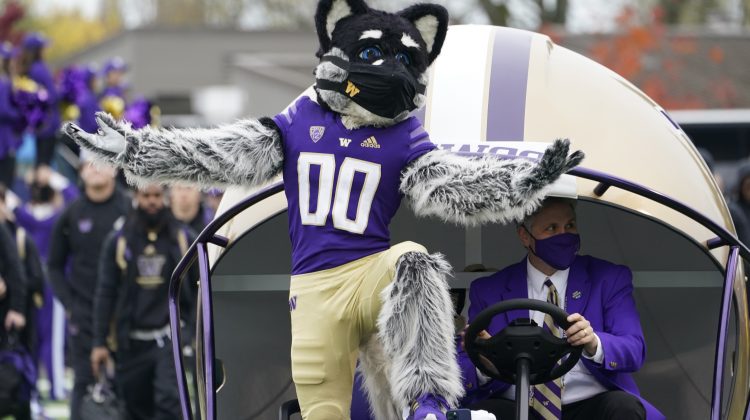Story by Jon Wilner
Almost two years to the day after Chris Petersen announced he was stepping down, Washington has found a replacement … for the replacement.
Diehard UW supporters and fans of Pac-12 alike should hope the Huskies got it right with Kalen DeBoer, who was hired away from Fresno State on Monday.
The conference needs Washington to thrive the way Oregon has thrived in recent years and in the same manner USC is expected to thrive in coming years.
Those are the three pillar programs — the only members of the Pac-12 to have participated in the College Football Playoff or won a national championship in the 21st century.
When they sag, the collective sags. When they soar, the collective soars. There was more sagging than soaring this fall, which helps explain why two of the three schools made coaching changes.
One day after USC stunned the sport by luring Lincoln Riley away from Oklahoma, the Huskies countered with DeBoer.
A full evaluation of the latter hire requires a look below the surface, because the surface is not quite ideal.
The Huskies (understandably) view USC and Oregon as peer programs, and yet:
Their new head coach has a grand total of 12 career wins at the major college level.
Oregon’s coach, Mario Cristobal, owns back-to-back Pac-12 championships.
USC’s coach, the newly-acquired Riley, owns three playoff appearances.
On the surface, UW’s hire doesn’t stand up. Does that matter? Maybe not.
The primary challenge facing the Huskies during their search was economic: supply and demand within the coaching market. This was a bad month to be in pursuit of a head coach.
The Huskies were dealing with the same limited candidate pool as USC, LSU and Florida, each of which has won multiple national championships since UW’s last title (in 1991).
The Huskies purportedly pursued Iowa State’s Matt Campbell, who’s on the short list of the most coveted coaches in the sport. Campbell turned them down, perhaps because he knew that dominoes were falling on the sparsely-occupied tier above Washington.
That Riley’s move to USC would open up the Oklahoma job.
That LSU’s hiring of Brian Kelly would open up Notre Dame.
That’s our conjecture, of course, but it helps illustrate the supply-demand calculation working against the Huskies and another reason a below-the-surface dive is essential to accurately assessing the DeBoer hire.
(That same supply-demand situation undoubtedly impacted Washington State’s thinking when it decided to promote Jake Dickert, and it could be a reason Arizona State and UCLA are seemingly sticking with Herm Edwards and Chip Kelly, respectively. This is not the season to swim in the coaching pool. The agents smell blood in the water.)
The goal for Washington, first and foremost, was risk mitigation.
The Huskies had to get this hire right, partly because of the events of the past three months under former coach Jimmy Lake and partly because of the lurking competitive danger — that UW would cede ground relative to Oregon and USC.
Yet the options for A-list coaches were limited, if non-existent. So it became a matter of identifying the up-and-coming coach who gave UW the best chance for success.
We think DeBoer clears that bar.
He’s not a retread who has been off the sidelines for a few years. He’s not a half-step from retirement. He came up through the small-college route (the University of Sioux Falls) and should be highly motivated to prove himself at the Power Five level.
Also, he comes recommended by former Fresno State coach Jeff Tedford, who hired DeBoer years ago as his offensive coordinator.
Tedford is perhaps the only elite football mind alive who knows DeBoer well and has first-hand experience coaching on Montlake, having served as an analyst under Petersen during UW’s 2016 playoff run.
It’s clear athletic director Jen Cohen leaned on Tedford and Petersen, which makes all the sense in the world. They are two of the best coaches the West Coast has produced in the past quarter century, and both know UW.
What’s more, DeBoer has proven himself more than competent in the area the Huskies were wholly incompetent — on offense.
Tedford’s faith and mentorship is just one piece of evidence. DeBoer’s background is another.
The 47-year-old spent two years as Fresno State’s offensive coordinator and quarterbacks coach, then jumped to the same role at Indiana for one season before returning to Fresno to take over the program.
Consider Indiana’s points per game average in the year prior to DeBoer’s arrival (2018), the year with DeBoer running the offense (2019), and the year after DeBoer’s departure (2020):
2018: 26.4
2019: 31.8
2020: 28.9
And consider Indiana’s average yards per play in the year prior to DeBoer (2018), the year with DeBoer (2019), and the year after DeBoer (2020):
2018: 5.48
2019: 5.99
2020: 5.05
That’s telling.
So, too, is DeBoer’s work with Jake Haener, the former Washington reserve who transferred to Fresno State and currently ranks as the most efficient quarterback in the West.
But because DeBoer’s head coaching experience at the FBS level is limited, because his background in the Pacific Northwest is non-existent and because UW’s current failings are numerous, there is plenty we don’t know and are curious to learn more about:
— The quarterback plan.
Will the 2022 starter be Sam Huard or Dylan Morris … or someone else?
DeBoer doesn’t run the pure Air Raid scheme that would best suit Huard’s skills. But is Morris the answer? We’re skeptical. Morris has a strong arm, but: he’s not accurate; he’s not tall, which makes it difficult to see throwing lanes over the pass rush; and he’s not mobile — a massive deficiency in today’s game.
At the same time, UW’s questionable usage of Huard this season left limited clarity on his potential.
— The recruiting plan.
How will the Huskies compete against USC and Oregon — not to mention marauders from the SEC and Big Ten — for the elite prospects on the West Coast?
Also, how will DeBoer repair whatever damage exists with prep coaches and influencers connected to the top talents in the Seattle area? Clearly, UW’s brand is damaged locally, or it would have experienced better success under Lake.
To what extent will UW rely on the transfer portal vs. the traditional high school pipeline?
How many resources will be devoted to out-of-region recruiting in Texas and Georgia?
And how does DeBoer plan to recruit the Polynesian community, both on the Mainland and across the Pacific Islands?
— The defensive plan.
DeBoer will oversee the offense, making his selection for defensive coordinator vital.
Will they be aggressive or use a bend-don’t-break philosophy?
Will they deploy a 4-3 alignment or use the 3-4? The supply of quality linebackers is far greater than that of top linemen, but UW is one of the few West Coast programs capable of producing elite four-man fronts.
— The strength plan.
The strength and conditioning coach is the most important member of the football operation who isn’t the head coach. He runs the show throughout the critical offseason months and sets the mental and physical tone for the program.
Clearly, the Huskies have lost their edge at the line of scrimmage in recent years. They aren’t a dominant running game, and they cannot stop the run. Recruiting plays a role, of course, but the culture established by the head coach and strength coach is critical.
We were impressed with the tenacity Fresno State displayed over the past two years under DeBoer.
Like so many other aspects of the hire, there are reasons for Washington fans — those with hair and those who pulled it all out this fall — to be encouraged.
The supply and demand equation was daunting. The risk mitigation approach was essential. And we suspect the Huskies got it right.
Support the Hotline: Receive three months of unlimited access for just 99 cents. Yep, that’s 99 cents for 90 days, with the option to cancel anytime. Details are here, and thanks for your support.
*** Send suggestions, comments and tips (confidentiality guaranteed) to pac12hotline@bayareanewsgroup.com or call 408-920-5716
*** Follow me on Twitter: @WilnerHotline
*** Pac-12 Hotline is not endorsed or sponsored by the Pac-12 Conference, and the views expressed herein do not necessarily reflect the views of the Conference.
Related posts:
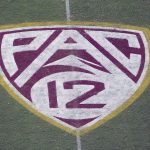
(AP Photo/Ralph Freso, File)
Wilner Hotline: Pac-12 Bowl Forecast, UW Almost Out of the Picture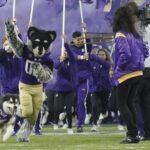
Harry, the Washington Huskies mascot. (AP Photo/Ted S. Warren)
CFP rankings: Washington gains, Utah fades as Pac-12 places four teams in the committee’s top-25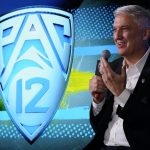
(AP Photo/Marcio Jose Sanchez)
Business of Sports – Say what? Commissioner George Kliavkoff believes the Pac-12 will “catch” the Big Ten, SEC in media revenue. Allow us to explain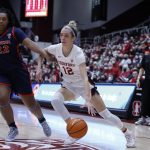
(AP Photo/Josie Lepe)
As Pac-12 approaches new media deal, women’s basketball is now a big part of the conference’s TV offerings
